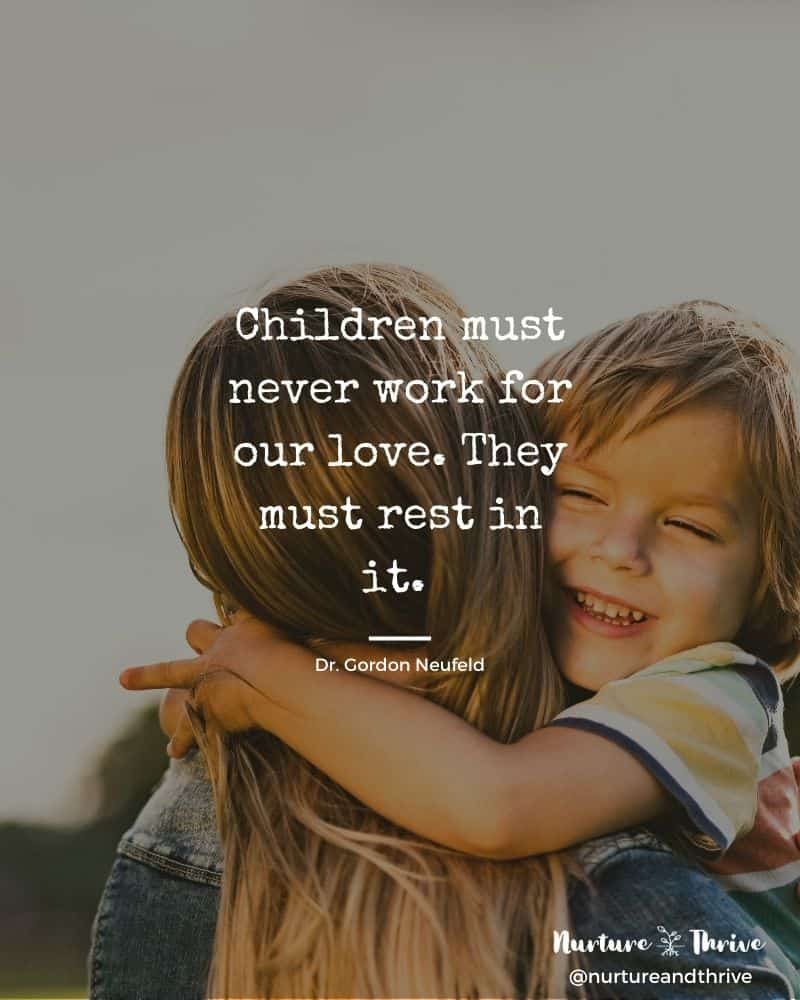Inside: Do you want to be a family that accepts all emotions instead of trying to control emotions? Why it is so important to stop yelling at your kids and 10 ways to stop yelling at your kids today.
How your speak to your child becomes their inner voice.
Peggy O’Mara
That quote is a bit of a punch to the gut, isn’t it? We’ve all had moments we aren’t proud of as a parent.
And perfection isn’t what we are striving for. But there is a better way. A way out of the reactive cycle of stress, yell, guilt, and try again the next day.
The key is to stop trying to control our emotions and controlling our kid’s emotions. The first thing we have to realize is that we are yelling at ourselves with our inner voice.
Imagine this… it’s been a long day, and for the umpteenth time, you ask your child to please turn off the TV. They start to have a tantrum. You feel the stress bubbling up in your body, and without realizing it, you berate yourself for not being a “calm mom,” and you yell at your child.

Here’s the punchline. It’s unrealistic to think that you won’t have uncomfortable emotions or that you will always be calm. We all have those feelings! And our kids seem to know just how to push our self-regulation to its limits.
And that is exactly where you start. Stop yelling at yourself. If you are stressed and tired, acknowledge that to yourself. Tell yourself it’s okay to feel how you feel. Expect that when you look inside yourself that you will see ‘negative emotions.’ That’s the key: Accept yourself and all of your emotions first.
Why It’s So Important to Stop Yelling
A new study from Université de Montréal and Stanford showed that children of parents who repeatedly got angry, shake or yell at their children had smaller prefrontal cortexes and amygdala (source).
The prefrontal context and the amygdala (part of the limbic system) are key structures in emotion regulation and, when dysregulated, are linked to anxiety and depression.
On the other hand, research shows that people who habitually accept their emotions and thoughts without judging them have more psychological well-being and life satisfaction and fewer depressive and anxiety symptoms (source).
Children learn how to handle their emotions from us. We are part of the process that shapes their future psychological health. When your child has a tantrum or a meltdown — see that as a chance to help them build those connections.
When you accept your own uncomfortable feelings, the need to lash out in stress will dissipate. So, next time your child has a tantrum, pause and acknowledge how that makes you feel. Don’t criticize yourself. Breathe. Tell yourself it’s okay to feel stressed and then turn to that little person who needs you.
This is a chance for your child to learn how to weather stress, challenge, and the ups and downs of our world in the safety of your arms — before they have to face the world and all its harshness without the comfort of childhood.

How to Stop Yelling At Your Child: 10 Ways to Raise Emotionally Resilient Kids
The first step is to see — really see — the root emotions — yours and theirs. Inappropriate behaviors come from the immature expression of emotions, overstimulation, hunger, fatigue, or impulses.
If you look beyond the behavior for the root cause, you can help your child in the midst of tantrums and meltdowns.
When our kids impulsively act on their emotions, we instantly hone in on what they are doing wrong. We equate the behavior to the emotion. This can tell our kids that how they feel is wrong, making them feel worse and more likely to either internalize or lash out. Over time, this becomes a vicious cycle.
What we need to do is separate the behavior from the emotion. Feeling hurt, frustrated, angry, or upset because your friend took your toy away from you isn’t bad — it is entirely appropriate to feel those things. But the behavior of hitting your friend over the head with another toy isn’t the best way to express those feelings.
Why? Hitting your friend is wrong for many reasons, but one is the social cost –you risk losing that friend. Luckily (and probably due to evolution), little kids don’t hold grudges.
Once you begin to look at behavior and emotions this way, it becomes much easier not to yell.
- Learn to tune into your emotions and accept them! Don’t criticize. It is okay that you feel stressed when your child has a tantrum. Breathe through your feelings.
- Pause before you react. In fact, don’t react — respond. Root into the earth and breathe. This is a habit you can build over time.
- Use a Mantra or a phrase that reminds you of your commitment to speak to your child in a respectful way. This serves two purposes — first, it reminds you of your reason for wanting to stop yelling. Second, language engages our logical brain and can calm our own response.
- Realize all behavior is communication. Learn to separate your child’s underlying emotions and impulses from their behavior (see how here).
- Remember that your child’s brain is not mature! The self-regulation system develops throughout childhood. How you respond to their distress helps to shape that system. And it also means that their ability to regulate emotions is still very much under construction.
- Use feeling-breaks (an alternative to a time-out) to help your child learn to name and accept their emotions and reflect on better ways to express emotions and impulses. Feeling-breaks can also be for you — if you are frustrated and need a break, learn what to say so you can walk away and regulate your own emotions.
- Calm the brain and body first. When your child is in the midst of a meltdown or tantrum, don’t try to reason with them. Try to soothe their nervous system with things that you know comfort them. A hug, moving to a quiet area, a favorite stuffie, rubbing their arms, or pretending to blow out the candle to slow their breathing.
- Give your child choices for how to express how they feel. “You are really upset! Can you tell me how you feel? Do you want comfort, space, or silliness™? “
- Use sensory play as a way to help your child re-center. After a stressful time, a meltdown, a tantrum, or something upsetting, help your child resettle through sensory play. Here are 52 ideas for sensory play.
- Create a calm-down space in your home that shows all emotions are okay. This will give you tools to use in the moment when emotions are high.
Save this one for those hard moments! 10 Inspiring Quotes for Those Really Hard Parenting Moments
Related Resource: Get Started with Positive Parenting Today: 10 Tips From a Developmental Psychologist





 How to Create a Dream Calm-Down Corner in Your Home (and Your Heart!)
How to Create a Dream Calm-Down Corner in Your Home (and Your Heart!)